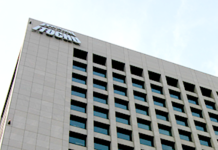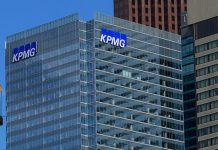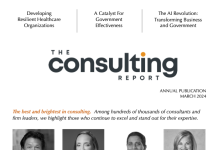It’s only natural that a top consulting firm whose operations span the globe would have established relationships with a wide variety of public and private sector entities. One could expect that fulfilling government contracts would lead to highly-placed contacts within those same governments as part of the regular course of business. Not all governments are equally democratic, however, and doing business in such countries may lead to some raised eyebrows in peacetime. When client nations go to war, corporations may find themselves in a challenging position of having to balance business interests against rapidly-shifting geopolitical, regulatory, and humanitarian needs.
Consulting firm McKinsey and Company (McKinsey) is finding itself under the spotlight: the U.S.-based consultancy has deep ties to both Russian and Chinese business leaders as well as their respective governments, and it also does substantial business with the United States government, including extensive contracts with the Department of Defense totaling more than $850 million in value to date. As Russia continues its highly controversial invasion of Ukraine, reporters are shedding light on the firm’s links with oligarchs and corrupt governments.
The company is no stranger to conflicts of interest, having recently agreed to a $573 million settlement following accusations that its work on behalf of drug manufacturers helped fuel the opioid crisis - while it simultaneously consulted for the Food and Drug Administration on its prescription drug policy. In years past, the firm agreed to pay more than $100 million to the South African government in compensation for its involvement in a massive corruption scandal involving power utility Eskom, which hearkens back to the services it provided the energy trader Enron.
It’s no secret that the governments of Russia and China enforce strict fealty to their priorities. Major domestic businesses are often required to embed government operatives (such as Russia’s “Economic Security Service”) into corporate leadership, providing tremendous leverage and ample opportunities for bribes and favors. McKinsey has undoubtedly provided services to these co-opted companies, such as state-owned VEB bank, which was under sanctions at the time of the firm’s engagement.
Operating in this sort of environment requires relationships that provide power and influence, and McKinsey is no exception to this dynamic, having established relationships with numerous Russian oligarchs. This dynamic made itself apparent during the 2021 Alexei Navalny protests, when Vitaly Klintsov, a senior partner in McKinsey’s Moscow office, sent out a directive to employees with strict instructions to refrain from anti-Putin speech or participation in demonstrations. He rescinded his instructions the next day, once it became public.
Despite controversy and ethical concerns, there is money to be made, and it’s unlikely that consultancies will stop taking contracts until the U.S. and its allies impose harsh sanctions on those who choose to do business with oligarchs and corrupt governments.
























